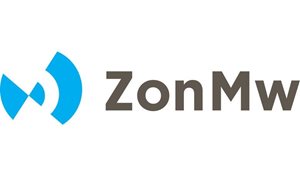16 December 2019
Endogenous extracellular Galectins constitute a novel mechanism of membrane protein organization at the cell surface. Although Galectins are also highly expressed intracellularly, their cytosolic functions are poorly understood. They investigated the role of Galectin-9 in dendritic cell (DC) surface organization and function. By combining functional, super-resolution and atomic force microscopy experiments to analyze membrane stiffness, they identified intracellular Galectin-9 to be indispensable for plasma membrane integrity and structure in DCs. Galectin-9 knockdown studies revealed intracellular Galectin-9 to directly control cortical membrane structure by modulating Rac1 activity, providing the underlying mechanism of Galectin-9-dependent actin cytoskeleton organization. Consequent to its role in maintaining plasma membrane structure, phagocytosis studies revealed that Galectin-9 was essential for C-type-lectin receptor-mediated pathogen uptake by DCs. This was confirmed by the impaired phagocytic capacity of Galectin-9-null murine DCs. Together, this study demonstrates a novel role for intracellular Galectin-9 in modulating DC function, which may be evolutionarily conserved.

Endogenous extracellular Galectins constitute a novel mechanism of membrane protein organization at the cell surface. Although Galectins are also highly expressed intracellularly, their cytosolic functions are poorly understood. They investigated the role of Galectin-9 in dendritic cell (DC) surface organization and function. By combining functional, super-resolution and atomic force microscopy experiments to analyze membrane stiffness, they identified intracellular Galectin-9 to be indispensable for plasma membrane integrity and structure in DCs. Galectin-9 knockdown studies revealed intracellular Galectin-9 to directly control cortical membrane structure by modulating Rac1 activity, providing the underlying mechanism of Galectin-9-dependent actin cytoskeleton organization. Consequent to its role in maintaining plasma membrane structure, phagocytosis studies revealed that Galectin-9 was essential for C-type-lectin receptor-mediated pathogen uptake by DCs. This was confirmed by the impaired phagocytic capacity of Galectin-9-null murine DCs. Together, this study demonstrates a novel role for intracellular Galectin-9 in modulating DC function, which may be evolutionarily conserved.
Related news items

ZonMw Open Competition Grant for Annemiek van Spriel and Piet Gros
15 June 2021 Annemiek van Spriel, theme cancer development and immune defense, together with Piet Gros, Dept. of Chemistry, Utrecht University obtained a ZonMw Open Competition Grant to investigate IL-6 receptor structure and signalling in tumor cells. go to page
HFSP Grant for Johannes Textor
30 March 2020 Johannes Textor, theme Cancer development and immune defense, has been awarded a program grant of 1 million US dollars by The Human Frontier Science Program (HFSP) to investigate how T cells navigate extremely dense environments using experiments, modeling and methods from pedestrian dynamics. go to page
Human pDCs attract cytolytic lymphocytes in anti-cancer vaccination
6 February 2020RIMLS researchers Jasper van Beek and Jolanda de Vries, theme Cancer development and immune defense, discovered that pDCs can efficiently recruit cytolytic immune effector cells, a property that could be exploited in anti-cancer vaccines. They have published these findings in Cell Reports.
go to page
ZonMw funding for teams of Michiel Vermeulen and Jolanda de Vries
4 February 2020The awarded research projects of RIMLS researchers Michiel Vermeulen, Jolanda de Vries, Gerty Schreibelt and Martijn Verdoes and colleagues will initiate new research lines and collaborations between various research groups.
go to page
Niels Stensen Fellowship for Jorieke Weiden
6 January 2020 Jorieke Weiden was recently awarded a grant from the Niels Stensen Fellowship. Since the 1960s, the Niels Stensen Fellowship has been awarded annually to outstanding researchers who recently received their PhD to enable them to gain research experience at a top university or institute abroad. go to page